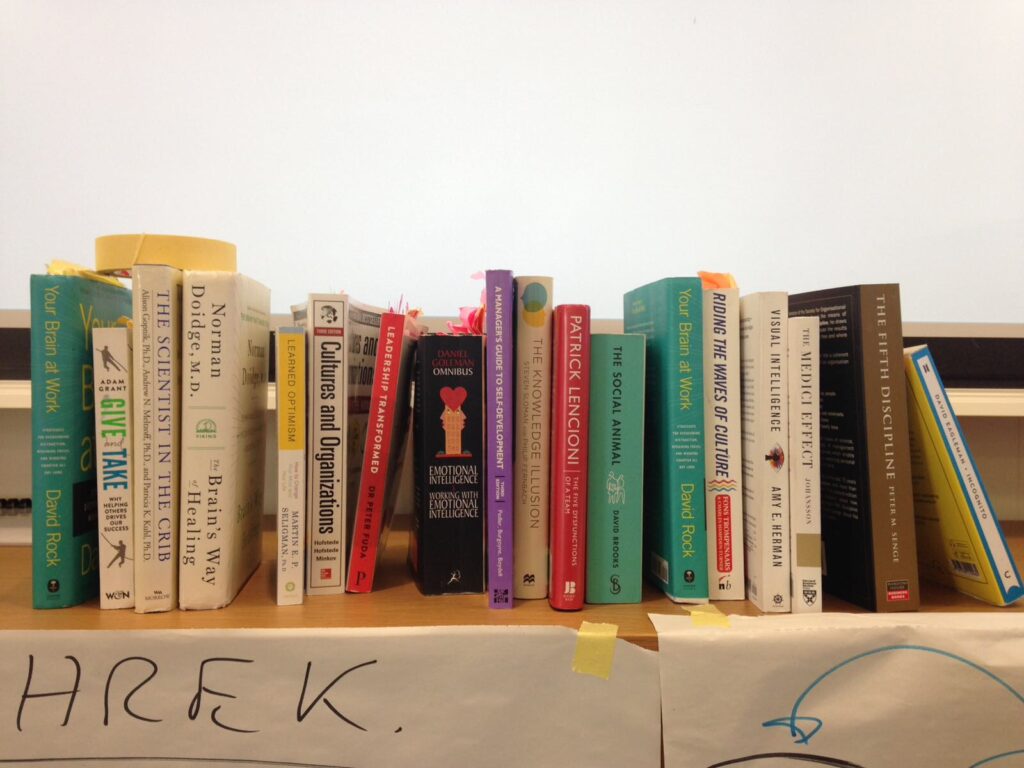For years, I operated under the delusion that more effort equals better results. Work harder, grind longer, push through the fatigue—surely, that’s the secret to success? After all, that’s what we’re taught, isn’t it? The noble British spirit of “keep calm and carry on” (often accompanied by a grimace, a lukewarm cup of tea, and the quiet certainty that this is slowly killing us).
But here’s the irony: the harder I tried, the more I found myself staring blankly at my laptop, words refusing to arrange themselves into sentences, my brain about as useful as a damp sponge. It turns out, science backs this up—your brain, much like an overworked employee, performs significantly worse when it’s forced to work beyond its natural limits.
And the solution? Stop. Walk away. Have a biscuit. Or, if you’re feeling particularly revolutionary, stare out of a window and pretend you’re in a BBC drama.
Why Brains Need a Break (And Why We Ignore It Anyway)
We tend to treat our brains like computers—expecting them to keep going indefinitely as long as we pour in caffeine and the occasional pep talk. But unlike computers, brains get tired, distracted, and occasionally decide to shut down entirely in protest (see: staring at a wall, doom-scrolling, or writing an important email only to realise you’ve been typing your shopping list instead).
Cognitive science has a term for this: directed attention fatigue. When we focus intensely for too long, our brain’s prefrontal cortex—responsible for decision-making, problem-solving, and not replying to emails with I will scream into the void if you ask me this again—simply runs out of steam. It’s like forcing a marathon runner to sprint the entire way: at some point, they’re just going to lie down on the pavement and refuse to move.
This is why some of our best ideas come when we’re doing something entirely unrelated, like showering, walking, or—if you’re particularly refined—staring wistfully out of a train window pretending you’re in a film.
The Neuroscience of the “Eureka!” Moment
Ever noticed how the moment you stop trying to remember something—like the name of that actor from that thing—it suddenly pops into your head hours later while you’re buttering toast? That’s because the brain has two distinct problem-solving modes:
- Focused Mode – when you’re actively concentrating on something (often accompanied by excessive frowning).
- Diffuse Mode – when your brain drifts, connecting ideas in the background while you’re engaged in something relaxing, like daydreaming, walking, or contemplating whether you really need another cup of tea (you do).
The real magic happens in diffuse mode. Studies in neuroscience show that taking breaks improves creativity, problem-solving, and overall cognitive function. When we step away from a task, the brain continues working on it in the background—like a diligent assistant who refuses to clock out.
This is why some of the greatest minds in history—Einstein, Darwin, and even Agatha Christie—relied on long walks, naps, and periods of aimless pottering to spark their best ideas.
So, if you’re struggling with a problem, the best course of action might not be “try harder.” It might just be “make a cup of tea and stare at a tree for a bit.”
The Psychological Warfare of Doing Nothing
Despite overwhelming evidence that overworking is counterproductive, we’re still culturally wired to feel guilty about rest. There’s a pervasive belief that if we’re not suffering, we’re not working hard enough. We treat exhaustion like a badge of honour, competing over who has the most meetings, the least sleep, or the highest caffeine intake before experiencing heart palpitations.
Nick Potter, in The Meaning of Pain, highlights how modern stressors—constant productivity, endless notifications, the inability to escape work emails—are completely at odds with how our brains evolved. Our ancestors weren’t answering emails at 2 AM—they were too busy avoiding being eaten by things. Their survival depended on bursts of intense focus followed by periods of genuine rest.
Research from Stanford University found that productivity dramatically declines after about 50 hours of intense work per week, and after 55 hours, it becomes essentially pointless—as in, you might as well spend that time learning to juggle or watching cat videos because your brain has checked out anyway.
The takeaway? Doing nothing isn’t just acceptable; it’s essential.
How to Trick Yourself Into Taking Breaks (Because You Probably Won’t Otherwise)
If you’re still clinging to the “I’ll rest when I’m dead” philosophy (first of all, please don’t), here’s a simple plan to outsmart your own workaholic tendencies:
1. The 90-Minute Rule
Research suggests our brains work best in 90-minute focus blocks, followed by a 15–20 minute break. So, if you’re powering through for three hours straight, congratulations, you’re just making yourself slower.
2. The “Boring” Break
The best cognitive resets involve low-stimulation activities: walking, staring out of the window, doodling, or pottering about the house pretending you’re about to do something important but actually just moving objects around. Scrolling through social media doesn’t count, because it keeps your brain in hyper-focused mode (and likely makes you mildly furious in the process).
3. The Sleep Shortcut
The ultimate brain reset. Sleep helps process information, strengthen memories, and clear out cognitive clutter. If you’re at the point where you’ve re-read the same sentence six times and still have no idea what it says, go to bed. Your future self will thank you.
A Final Word (And an Excuse to Stop Working Right Now)
If you take nothing else from this, let it be this: your brain is not a factory. It’s a delicate, brilliant, overworked piece of biological machinery that occasionally needs to be turned off and on again.
So, next time you’re stuck, frustrated, or finding yourself irrationally annoyed by the sound of your own typing, try something radical:
Stop trying so hard. Take a walk. Make a cup of tea. Do absolutely nothing for five minutes and watch what happens.
Because sometimes, the smartest thing your brain can do… is take a bloody breather.



